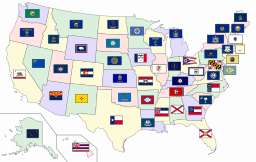
Moss has published “An Open Letter to State and Local Policy Makers Considering Drone Laws” explaining why local drone laws come up against federal preemption, and require very careful consideration. And he invites any drone operator speaking with local regulators to make use of the letter to help. “There are a lot of politicians who want to work within the law,” says Moss. “I think most simply don’t understand the federal framework.”
State and local regulations cause a big problem for drone operators, particularly those professionals making every effort to fly legally. It’s a problem Moss, who is based out of Colorado but operates all over the country, is all too familiar with. If he operated a drone from where he lives, he explains, he could cover 2 towns and some unincorporated county land. “I could have to fly under 3 sets of laws in one flight,” he points out. “What laws am I supposed to follow? How am I supposed to follow the laws if I don’t even know where to find them?”
Finding the laws is a major problem for drone operators, dealing with a potential triple threat from federal, state, and city governments. Add the complexity of all of the “without permission” clauses – as in, you can’t fly near local critical infrastructure “without permission” – and commercial flight can become a logistical nightmare. “Who grants permission?” asks Moss, pointing out that many regulations may get passed without the processes required to make them work. “How do I get that? It’s just not very clear.”
But despite the industry’s frustration and the FAA’s warnings that they are the only agency responsible for regulating the airspace, local regulations keep coming up: at a disturbingly increasing pace. “It seems like this year, they’ve come out of the woodwork,” says Moss.
Moss encourages local regulators to speak to local drone operators, both commercial and recreational; and to make sure that they have all of the facts before them before they decide to pass laws that may have unintended consequences.
“It is in the best interest of your state or town for you to educate not only yourselves about who has authority over the NAS, but your constituency as well,” says Moss’ letter. “Not only will it save time and resources of your municipality, you won’t have to sit in front of an angry group of constituents asking why their taxes went up in order to pay for a federal lawsuit.”

Miriam McNabb is the Editor-in-Chief of DRONELIFE and CEO of JobForDrones, a professional drone services marketplace, and a fascinated observer of the emerging drone industry and the regulatory environment for drones. Miriam has penned over 3,000 articles focused on the commercial drone space and is an international speaker and recognized figure in the industry. Miriam has a degree from the University of Chicago and over 20 years of experience in high tech sales and marketing for new technologies.
For drone industry consulting or writing, Email Miriam.
TWITTER:@spaldingbarker
Subscribe to DroneLife here.